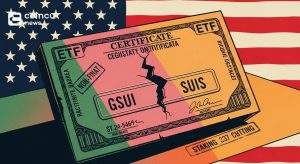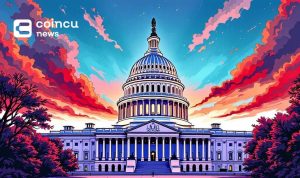Binance CEO: Singapore More Cautious With Crypto After The FTX Crisis
Key Points:
- Singapore balances crypto-friendliness with increased caution after FTX’s collapse.
- Tighter crypto regulations worldwide affect traditional financial institutions.
- Binance faces intense scrutiny, particularly in the U.S., following SEC allegations of securities violations.
Singapore, known for its crypto-friendly approach, has embraced a more conservative stance in light of recent global developments in the digital asset space. Changpeng Zhao, the CEO of Binance, the world’s largest cryptocurrency exchange, weighed in on the situation during a conference in Singapore.

According to Bloomberg, Zhao noted that while Singapore had become more cautious about cryptocurrency regulation following the collapse of FTX, it still remained largely crypto-friendly. He pointed out that the Hong Kong crypto regulations implemented mid-year only permitted a limited number of tokens for retail investors to trade.
This shift towards tighter crypto regulations has led many traditional financial institutions to be hesitant about offering services related to cryptocurrencies. Despite this, Zhao emphasized that new players in the crypto industry were emerging, indicating continued interest and growth in the sector.
Earlier this year, the U.S. Securities and Exchange Commission (SEC) filed a lawsuit against Binance and CZ, alleging multiple securities violations related to the BNB token and the stablecoin BUSD. The lawsuit has had repercussions, leading to a loss of market share for Binance’s stablecoin.
In response, Binance.US, a separate entity catering to the U.S. market, has challenged the SEC’s motions for depositions and further discovery, asserting that evidence of wrongful diversion of customer funds has not been presented.
The evolving regulatory landscape and the actions of major players like Binance underscore the ongoing transformation and challenges within the cryptocurrency industry. Singapore’s nuanced approach, balancing regulation and innovation, reflects the broader global conversation surrounding digital assets.
DISCLAIMER: The information on this website is provided as general market commentary and does not constitute investment advice. We encourage you to do your own research before investing.






















